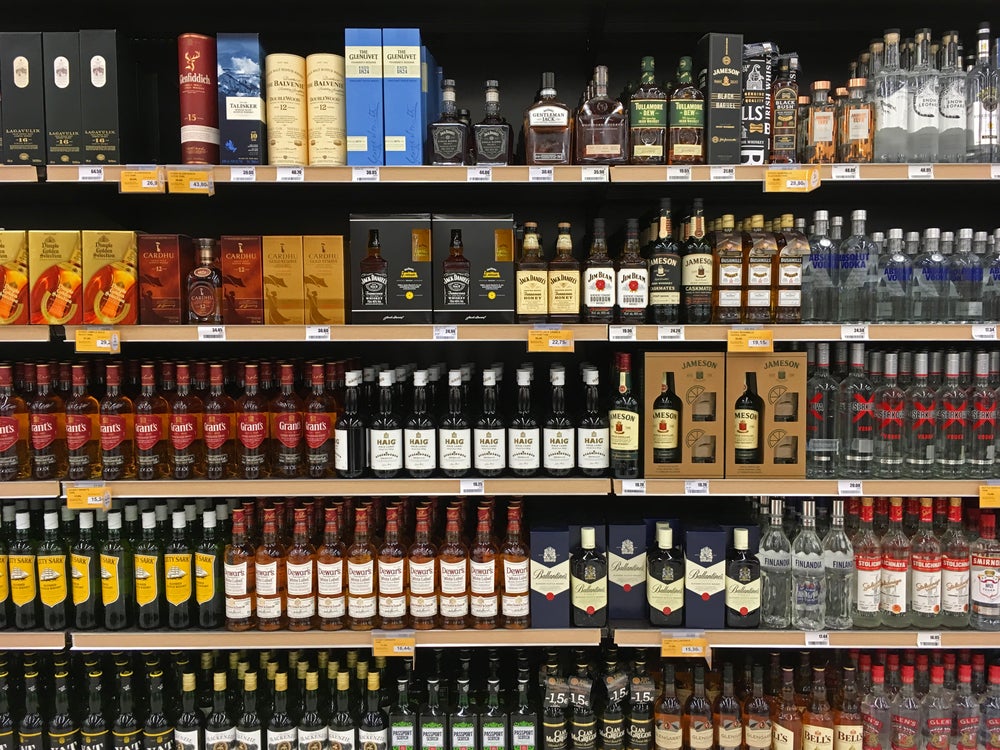
As worldwide consumer awareness around environmental issues grows, major efforts to provide eco-friendly packaging concepts can be seen throughout the drinks industry.
Packaging design has always been a major factor for drinks companies to consider when bringing products to market. In May, Packaging Gateway’s parent company GlobalData, released the Category Packaging Opportunities 2022: Alcoholic Beverages report, which looked at trends within the alcohol industry.
Alcohol remains a major market for the beverages industry. A survey within the report showed of the alcohol-drinking consumers, over a third drank alcohol occasionally (35%), over a fifth consumed it regularly (21%) and less than a fifth (19%) did so whilst socialising. According to the same report, almost half (45%) of global consumers claim it is ‘extremely important’ to be more loyal to brands that support environmental matters.
Globally, there is a strong focus on climate change, environmental deterioration, biodiversity loss, and resource shortages amid growing energy demands. The report showed that for most consumers (68%), packaging made from renewable sources was considered to be extremely or quite important.
Sustainable alcohol products
Manufacturers have responded to consumers’ demands for more sustainable products by designing packaging with a view to reducing the material or weight of the item itself, which results in reduced transportation costs and therefore lower CO2 emissions. Some manufacturers are opting to replace plastics with more sustainable materials such as cartonboard or are introducing solutions that facilitate easier material separation for recycling.
Frugalpac, the business that is said to have pioneered the world’s first commercially available paper bottles, created a format that is 84% recyclable by weight. The bottle production has a process which eliminates the laminating of materials, making the separation of materials easier for recycling.
Frugalpac CEO Malcolm Waugh, said: “The package is 16% plastic film. That 16% plastic allows us to use 84% recycled content in the bottle by weight and that’s what drives the carbon down. The combination of both of those materials gives us a very sustainable package.”
He continued: “We are producing packaging using low energy. Compared to the glass industry, we are taking a very heavy industrial product and turning it into a very light-engineered product. We are reducing carbon by six times for each bottle that we make, this indirectly puts us into a very positive place in terms of ESG.”
The report says that consumers also responded well to packaging with simple functionality such as easy-to-open or easy-to-hold packs. These trends not only helped tackle concerns around sustainability, they also offered businesses the opportunity to create bespoke, elegant products, which consumers tend to prefer.
Catalonian beer brand Estrella Damm has brought a new sustainable option to the market. It has created a board-based neck collar that it describes as “100% biodegradable” and made with FSC board from sustainably managed forests.
Premiumisation
The drinks industry has realised alcohol has a number of unique selling points for consumers. . In addition to beautiful-looking packaged products, many businesses have introduced gift-ready solutions. The use of either attractive functional packaging to serve as a ready-made gift, or to provide stand-out styled bottles.
Premiumisation is used to attract consumers who want to treat themselves by buying something that is seen as better and usually more expensive. Packaging with elegant decoration and upscale-design elements such as limited edition designs, unique patterns, or foil blocked details are valued by many consumers.
An example of this is Debowa Polska Military Vodka, a company that engineered a product sold in a bottle with an outer oak wood which resembles a large bullet. The intriguing look of the bottle is deemed a perfect gift for military fans on special occasions.
Alcohol brand Baileys Irish Cream Liqueur sought to tempt consumers with ‘PREZZIEcards’, an innovative idea which features a miniature bottle in a presentation gift pack. The carton has a front flap that opens like a greetings card, which provides a sense of fun and novelty to appeal to the consumer.
GlobalData analyst Pawel Urban, explained: “Luxury bespoke packaging aims to provide a satisfying experience for consumers, which can also mean satisfaction in minimising negative impacts on the environment. Plastic-free or plant-based materials that are easier to recycle or are biodegradable can go well with high-quality, luxury products. In fact, more and more manufacturers are using sustainable materials to give their offerings a premium, artisan feel.”
GlobalData’s report highlights almost half (46%) of consumers view ‘time-saving’ as a key factor when deciding which products to purchase. Many consumers are time poor and constantly on the go, s which has led to the alcohol industry offering more easy-to-use and on-the-go products.
As a result, alcoholic beverage packaging innovations include smaller-sized bottles, additional cups, easy mixing solutions or non-breakable materials.




